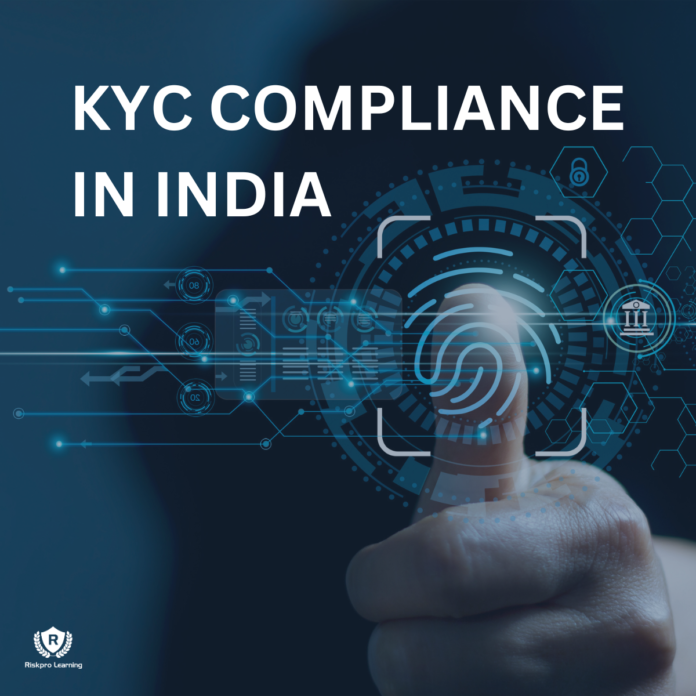Nowadays KYC Compliance is regarded as an important aspect in the banking sector. In the global fight against illegal activities such as money laundering and terrorist financing, robust rules and regulations have been established to safeguard the integrity of banks and other financial institutions. At the international level, the Financial Action Task Force (FATF), an inter-governmental body, plays a pivotal role in setting standards and encouraging countries to adopt effective measures to combat these threats to the global financial system.
As a committed member of the FATF, India recognizes the importance of upholding measures that protect the integrity of the international financial system. In this regard, India has implemented its own legal framework to combat money laundering and terrorism financing. The Prevention of Money-Laundering Act, 2002, and the Prevention of Money-Laundering (Maintenance of Records) Rules, 2005, serve as the cornerstone of this framework. Under these laws, regulated entities, are obligated to adhere to specific procedures for customer identification and transaction monitoring.
Regulated Entities
RBI
Banks verify and obtain information about their customers to ensure their identities and assess the potential risk associated with them through KYC process. By implementing KYC measures, banks can maintain the integrity of the financial system and protect the customers and themselves from fraudulent activities.
Banks that fail to conduct KYC procedures or do not adhere to KYC requirements can have serious consequences like penalties, reputation damage, regulatory scrutiny and investigations etc. Non-compliance with KYC regulations can lead to penalties that can range from fines to suspension of banking licenses. Banks may unknowingly facilitate money laundering, terrorist financing or other illegal activities by neglecting KYC procedures.
RBI has introduced the Reserve Bank of India (Know Your Customer (KYC)) Directions, 2016 which provide guidelines for financial institutions. The KYC directions aim to establish a framework for financial institution to ensure compliance with KYC regulations and mitigate the risks. Through these directions, the RBI seeks to enhance transparency, integrity and accountability in banking sector, maintaining a safer and more secure financial environment.
For more details: https://m.rbi.org.in/Scripts/BS_ViewMasDirections.aspx?id=11566
SEBI –
The aim of SEBI for conducting KYC is to protect investors by verifying their identity and background, ensuring they are dealing with legitimate individuals or entities. Conducting KYC helps maintain the integrity of the securities market by promoting fair trade practices, preventing market manipulation and ensuring compliance with regulations. It enables SEBI to assess the risk profile of investors, implement tailored regulatory oversight and manage risks effectively.
KYC ensures compliance with domestic and international anti-money laundering and counter-terrorist financing standards, maintaining trust and cooperation with global regulatory bodies. KYC helps prevent fraud, impersonation and unauthorized activities that could harm investors. KYC Compliance procedures help in detecting and preventing money laundering and terrorist financing activities. By establishing the source of funds and monitoring transactions, SEBI can identify suspicious activities and mitigate associated risks.
Some entities have basic requirements of CDD or KYC but there is no specific format mandated by SEBI. Different entities used different formats and documents, to have consistency SEBI requires all the intermediaries to use the same KYC form and documents. For more details: https://www.sebi.gov.in/legal/circulars/oct-2011/uniform-know-your-client-kyc-requirements-for-the-securities-market_20819.html?QUERY
IRDAI –
The Prevention of Money Laundering Act, 2002, applies to all financial institutions, including the life insurance companies. The regulatory authority has introduced a set of regulatory guidelines and instructions for life insurers and their agents, as part of the AML/CFT program specific to the insurance industry.
Life insurance offers a diverse range of products designed to transfer the financial risk associated with certain events from the insured individuals to the life insurance companies themselves. These products are made available to the public through trained agents and alternative distribution channels.
Life insurers have a responsibility to prevent money laundering and ensure the true identity of their customers. To comply with the anti-money laundering regulations, they are required to establish effective procedures for identifying customers and collecting accurate information.
The life insurers must identify and verify the beneficial owners of the insurance policies by collecting specific documents for KYC compliance. Electronic KYC (e-KYC) can be used for various services like biometric authentication. If there is any doubt about a customer’s identity, life insurers must file a Suspicious Transaction Report (STR) with the FIU’s.
For more details: https://irdai.gov.in/document-detail?documentId=750654
TRAI
Telecom Regulatory Authority of India has KYC Compliance requirements in the telecom industry to promote transparency, security and regulatory compliance. KYC Compliance serves for various purposes starting from verification of subscriber to prevention of fraud and unauthorized access. TRAI aims to implement KYC Compliance is to create a secured and transparent telecom environment that protects both consumers and the industry as a whole.
The implementation of KYC Compliance process in telecom industry has garnered support from various stakeholders, particularly broadcasters and their associations. It was initially proposed for DTH operators but the stakeholders argue that KYC should extend to other providers as well. The primary concern of this KYC process is preventing the smuggling of set-top boxes outside India.
Further, stakeholders believe that KYC Compliance or e-KYC measures would serve as deterrent against financial frauds, money laundering and other illicit activities. These arguments underline the importance of implementing strong KYC processes within the telecom industry.
For more details: https://www.trai.gov.in/sites/default/files/Recommendation_24102019.pdf

